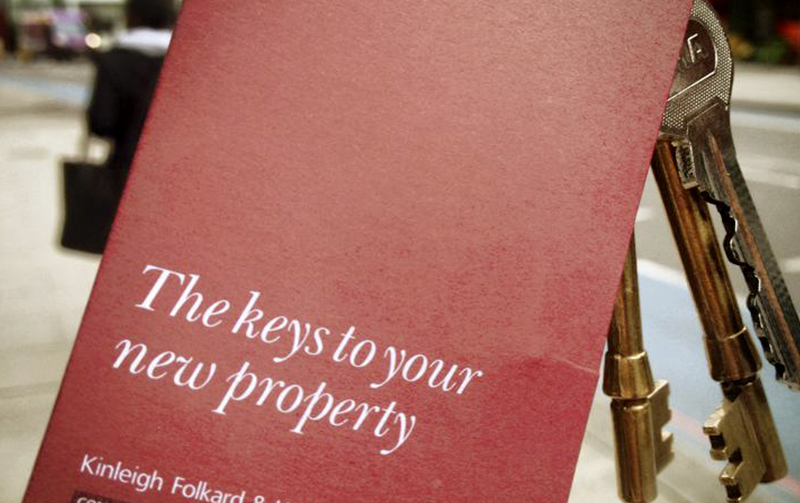Buying a House

This year JB swung her leg onto the property ladder and heaved herself up. If any of you are doing (or thinking of doing) the same, here’s some words of advice.
This year, I (with the help of Boy) managed to dig my nails into the property ladder and climb aboard. A momentous moment in my little life, but certainly not the easiest. The process of buying a house in this country (and especially this city) is a bit nuts, so I hope the following snippets of ‘been there done that’ help can be useful:
1) Lesson número uno. This process will cost you more than you think! Sorry to spout what may be the obvious but it’s worth remembering: last month a management fee set us back an unexpected £1200. Ouch.
Crack open your spreadsheets and tot up the cost of: legal fees (approx £1k), mortgage broker fees (approx £500), stamp duty (see point 4 below), survey fees (approx £300), property management fees (approx £1k), furniture (approx £4k for a one bed), and of course the deposit (whatever the hell you can grab!). Then you’ve got your big number right there.
2) Once you’ve done the calculations and you’re good to go, my advice would be to grab yourself a mortgage broker. I can recommend a great one if needed – just ask. He firstly taught me how a mortgage works (I had no idea) and then laid out the options in a genuinely impartial and easy to understand way. Worth his weight in gold.
3) I do NOT know the ins and outs of mortgages, but I know the odd thing:
– If you’re freelance, you’ll struggle to get one unless you can show at least one year of accounts, but more like three.
– If you’ve got a big fat deposit but not an insane wage, the deposit becomes somewhat irrelevant and you might struggle to find a mortgage.
– Most mortgages offer good rates for two years then they increase significantly after that. Set a date in your diary to remortgage and find yourself another two years of good rates. If you’re lazy you’ll pay!
– The golden threshold is over 20% deposit. 20.0001% is good enough! It tips you into a new loan-to-value ratio and gives you a much better mortgage rate than if you were at 19% deposit. Obviously, if you’re able to make this 30% rather than 29.4% then the same rule applies.
4) Don’t forget that any property over £250,000 will incur a 3% stamp duty, and any over £500 incurs 4%. This is paid after completion (it’s pretty much the last thing you do) so can sometimes be forgotten!
5) Putting an offer in is fun and games. In London, you may find yourself going to closed bids. Do your research (Zoopla is a great tool) and get a good grasp of house prices. You’ll probably have to go above asking price in this circumstance, but some understanding helps you avoid what a friend of mine recently heard after winning a closed bid: “Your offer blew the others out the water!”.
If it’s not come to closed bids on the property you’re looking at then you’ve got a better chance to justify your offer. If you’re a first time buyer, big this up – the flexibility it affords the seller is priceless. Here’s the time to pluck at some heart strings too: ‘looking for a first home we can love, this place felt perfect for us, love at first sight’ etc. Also, if you’re going in under offer explain why: if you justify your reasoning logically then it’ll help your bid.
Expect a few back and forths but fingers crossed you’ll get there in the end!
6) From the point of offer accepted, expect the process to take 3-4 months. Any shorter is a bonus! It was during this stage that I learnt a very valuable lesson: property solicitors will not contact you unless they have something to say. So two-week long silences might not be a bad thing, it just means everything is progressing. This took me a while to understand because in out industry we give clients an almost daily update, even if there’s no new news. Patience – but also knowing when to apply pressure – will be your greatest aids.
You may also find you become the intermediary between estate agent and solicitor (the two rarely talk). Make sure communication is happening as often as possible so all parties are aware of what’s going on. Oh, and you can never contact the seller’s solicitors, or you’ll get a very slapped wrist!
7) As a buyer in England, you have almost no control. All the cards are in the seller’s hand. It’s an uncomfortable position but one to be aware of: do your best to be amenable and positive to everyone involved, even the estate agent – they need to become your ally during the pretty unstable lead up to exchange.
8) You’ve exchanged, hurrah! All surveys came back fine, all funds are in place, no-one wants to pull out. Once those contracts have been exchanged, you’re pretty much signed sealed delivered, so breathe a little easier and get ready for completion.
9) Completion may come a day, a week, or even a month after exchange. It’s the agreed date that the seller has to be out of the property on and you can get the keys and move in (assuming all deposit funds go through ok).
10) This step is my favourite. The move-in. Champagne is a must.
Words by – Jo Birch займы без отказа займ до зарплаты северсквзять займ студентузайм киви без паспорта можно ли взять займ без паспортазайм на пару днеймикрозаймы онлайн первый займ бесплатно
